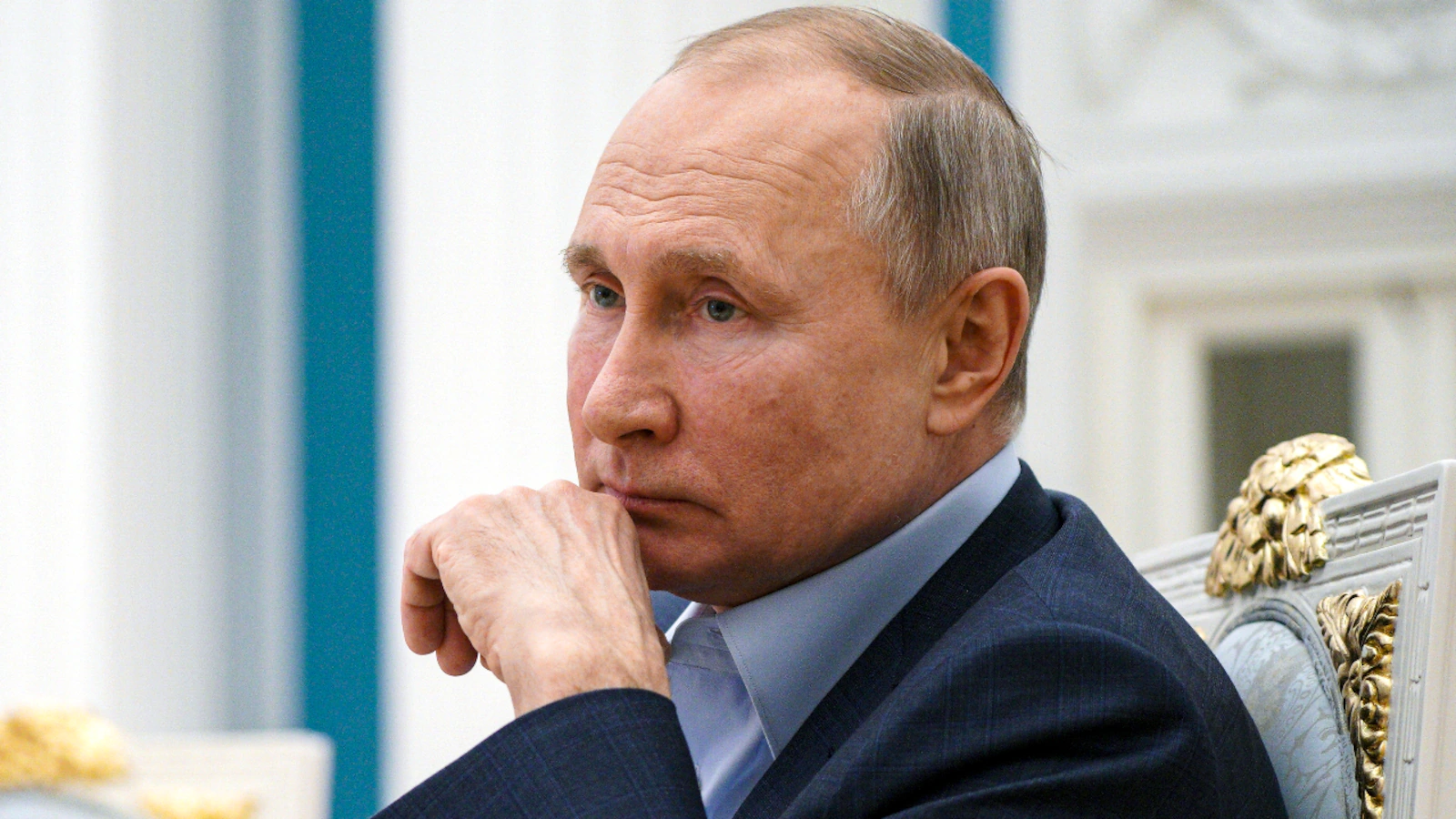
A distracted Russia is losing its grip on its old Soviet sphere
With the Kremlin detracted by its drooping war further than,500 long hauls down in Ukraine, Russia’s dominium over its old Soviet conglomerate shows signs of unraveling. Moscow has lost its air and its grip, creating a unruly vacuum that preliminarily biddable former Soviet satraps, as well as China, are moving to fill.
On the mountain- adjoined downs of southwestern Kyrgyzstan, the result in just one remote vill has been ruinous homes reduced to debris, a burned- out academy and a gut- wrenching reek expiring
from the rotting cadavers of,000 dead cravens.
All fell victim last month to the worst violence to hit the area since the 1991 collapse of the Soviet Union — a brief but bloody border conflict between Kyrgyzstan and Tajikistan, both members of a Russia- led military alliance devoted to conserving peace but which did nothing to halt the mayhem.Of course, they’re detracted by Ukraine, ” Kyrgyzstan President Sadyr Japarov lamented in an interview in Bishkek, the Kyrgyz capital.
Before President Vladimir Putin raided Ukraine in February, Russia played an outsize part in the affairs of Central Asia and also the unpredictable Caucasus region, in what had passed for a far- flung Pax Russica. In January, it rushed colors to Kazakhstan to help the government there calm a surge of violent domestic uneasiness. In 2020, it transferred around,000 fortified “ peacemakers ” to the Caucasus to apply a Moscow- intermediated armistice between Armenia and Azerbaijan.
moment, Armenia is fuming. Its high minister, Nikol Pashinyan, who has been a close supporter, appealed to Moscow in vain last month for help to halt renewed attacks by Azerbaijan. Furious at Russia’s inactivity, Armenia is now hanging to leave Moscow’s military alliance, the Collaborative Security Treaty Organization.
The Kazakh government that Putin helped prop up in January is veering far from the Kremlin’s script over Ukraine, and is looking to China for help in securing its own home, corridor of which are inhabited largely by ethnical Russians, and which Russian chauvinists view as belonging to Russia.
And then along the mountainous border between Kyrgyzstan and Tajikistan, long- running quarrels between growers over land, water and smuggled contraband escalated last month into a full- scale conflict involving tanks, copters and rockets, as the armies of the two countries fought each other to a deadlock.
The conflict, according to Kyrgyz officers, killed scores of civilians and drove further than,000 people from their homes. It also left numerous original residers and officers in Bishkek, the capital of Kyrgyzstan, asking why Moscow — long seen as an attentive guardian of stability on the combustive circumferences of the former Soviet conglomerate — had slightly lifted a cutlet.
Russia could have stopped all this in a alternate. But it did nothing. Why did it let this be? ” asked Zaynaddin Dubanaev, a 75- time-old Russian- language schoolteacher at the burned- out academy in Ak- Sai, a Kyrgyz vill next to a fended- off patch of Tajik home.
Moscow’s security alliance has long been touted by Putin as Russia’s answer to NATO and an anchor of its part as the dominant( and frequently tyrannous) force across vast swaths of the former Soviet Union. But now the bloc is slightly performing. Five of its six members — Armenia, Belarus, Russia, Tajikistan and Kyrgyzstan have been involved in wars this time, while the sixth, Kazakhstan, has seen violent internal strife.
In response, China is recently asserting itself, while the United States also sees an opening, pressing Kyrgyzstan to subscribe a new bilateral cooperation agreement. It would replace one scrapped in 2014 after Russian pressure forced the check of an American air base outside Bishkek that had been set up to fuel warplanes flying over Afghanistan.
Until Ukraine, China and Russia weren’t interested in open competition in Central Asia, ” said Asel Doolotkeldieva, a elderly speaker at the OSCE Academy in Bishkek, a center for postgraduate studies concentrated on security issues. “ There was a wordless division of labor security for Russia, economics for China. But Russia isn’t doing its job presently. It has shown that it’s unfit, or unintentional, to cover the region. ”
Russia still has tremendous influence in Central Asia. Its biggest foreign military base is in Tajikistan, and it has a small air base in Kyrgyzstan, a poor, remote country that remains heavily dependent on Russian energy inventories and remittances from further than 1 million Kyrgyz migratory workers in Russia.
Japarov, apprehensive of his country’s vulnerability, has stalled on subscribing the new agreement with the United States. Doing that would be perceived in Moscow as a “ impale in the reverse and they would be right, ” he said.
Russia is obviously concentrated on other effects right now, not Central Asia, but the moment it wants to lay down the law, it just has to allude that it’ll make life delicate for migratory workers in Russia, ” said Peter Leonard, Central Asia editor for Eurasianet, a media outlet that reports on the region.
But the recent border war between Kyrgyzstan and Tajikistan unsettled long- standing hypotheticals about Russian power. It erupted just as Putin was in bordering Uzbekistan for a peak meeting of a Chinese- patronized indigenous grouping, the Shanghai Cooperation Organization, which was attended by President Xi Jinping of China, as well as leaders of India, Turkey, Azerbaijan and four Central Asian countries.
Overshadowed by the Chinese leader, Putin endured a series of humiliating protocol snafus that left him staying awkwardly in front of the cameras as other leaders, including Japarov, showed up late to meet him.This was of course not deliberate, ” Japarov said. “ No slight was intended. ”
But extensively circulated vids of an uncomfortable- looking Putin; a public reproach from the high minister of India, who stated that “ moment’s period isn’t of war ”; and an acknowledgment from the Russian leader that China had “ questions and enterprises ” over the war in Ukraine all corroborated an image of shrinking leverage and lowered appeal.Putin is no longer the great insurmountable leader that everyone wants to meet, ” said Emil Dzhuraev, a experimenter in Bishkek with Crossroads Central Asia, a exploration group. “ He has lost his air. ”
By discrepancy, Xi has come more assertive. On a visit to Kazakhstan last month, he pledged to “ intensively support Kazakhstan in the defense of its independence, sovereignty and territorial integrity, ” a comment extensively interpreted as a warning to Moscow not to try anythingA many days latterly, after Tajik forces advanced, China issued a analogous pledge with respect to Kyrgyzstan, horning in on Russia’s long- standing part as the guardian of Central Asian borders.
Some officers in Bishkek wonder if Russia winked at the military action by Tajikistan, a tightly controlled absolutism ruled by the same leader since 1994, indeed longer than Putin has been in control of the Kremlin. Kyrgyzstan, by discrepancy, is considered the only Central Asian country with a modicum of real republic and a fairly free press.
The view of Putin siding with Tajikistan — rather than being an unprejudiced arbiter between two members of his military alliance gained further ground this once week when the Kremlin declared that it was giving the stager Tajik oppressor, Emomali Rahmon, a prestigious state award for his donation to indigenous stability and security. ”
Kyrgyzstan’s foreign ministry said the award, blazoned by Moscow “ while the blood of innocent victims has not yet cooled on Kyrgyz soil, ” had caused “ bafflement. ”The perverse aspect of this is that both sides are members of the same military alliance of which Russia is in charge, ” said Leonard, the Eurasianet editor. “ The days when Russia mandated these countries ’ military posture has easily gone out the window. ”


Average Rating